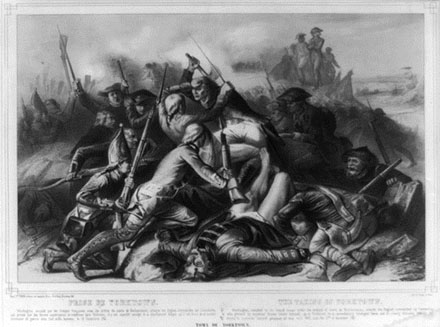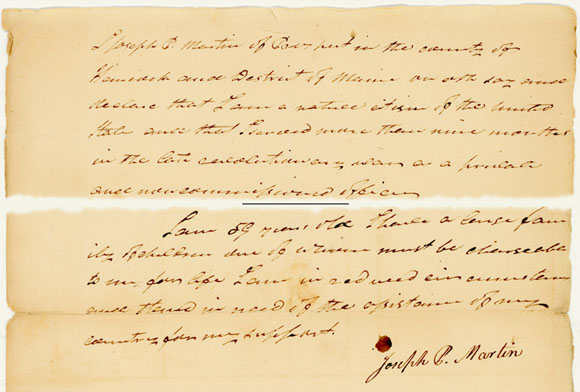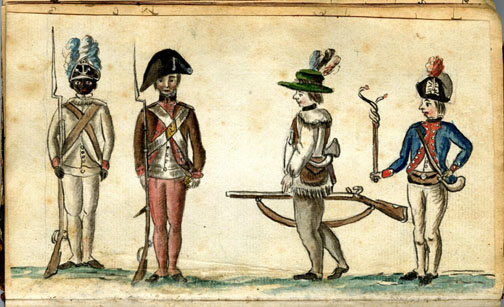 |
The Taking of Yorktown, Vve. Turgis, lithographer,
courtesy Library of Congress |
Until relatively recent times, the writing of military memoirs was a literary form engaged in by high-ranking officers. An important exception to this generalization is a book entitled A Narrative of Some Adventures, Dangers and Sufferings of a Revolutionary Soldier; Interspersed With Anecdotes of Incidents That Occurred Within His Own Observation. Written By Himself. The book was published anonymously in 1830; “Himself” was Joseph Plumb Martin.
Sixteen-year-old Martin, a Massachusetts native, began his service in the war for independence in a Connecticut militia regiment in 1776. Soon thereafter he was in the ranks of a Connecticut regiment of the Continental Army. In 1780, by then a corporal, he was transferred to one of the companies of Sappers and Miners that constituted the Corps of Engineers, created by Congress in 1779.
Promoted to sergeant, Martin remained in the Army until the conclusion of the war in 1783. Such long service in the forces of the Revolution was rare. In the course of fighting for the American cause, he participated in many important actions, such as the battles of Long Island, White Plains, Germantown, and Monmouth; the siege of Fort Mifflin; the winter of 1777–78 at Valley Forge; and the climactic Yorktown campaign.
In civilian life he settled in Maine, married, had five children, farmed, and served as a local official. Throughout the war he had kept a diary, which became the basis of his memoirs, published in 1830. The book did not sell well and was for years generally ignored by scholars. He died in 1850 at nearly 90 years of age, in a state of near-poverty.

Portions of a letter from Martin requesting financial assistance, courtesy National Archives
By 1962, when a new edition of Martin’s narrative was published, historians had come to value the writings of enlisted men, and many edited versions of their letters, diaries, and recollections were appearing in print. Since its initial republication Martin’s book has appeared in several editions with various titles.
Although Martin has been criticized for embellishing his facts and recording events he could not have witnessed, his memoir remains a valuable source for understanding the American Revolution. In vivid prose, he described the hardships and perils of service in the struggle for independence, all from the perspective of a literate and observant enlisted man.

Soldiers in Uniform by Jean Baptiste Antoine de Verger, courtesy Anne S. K. Brown Military Collection, Brown University Library
* * *
July 2009